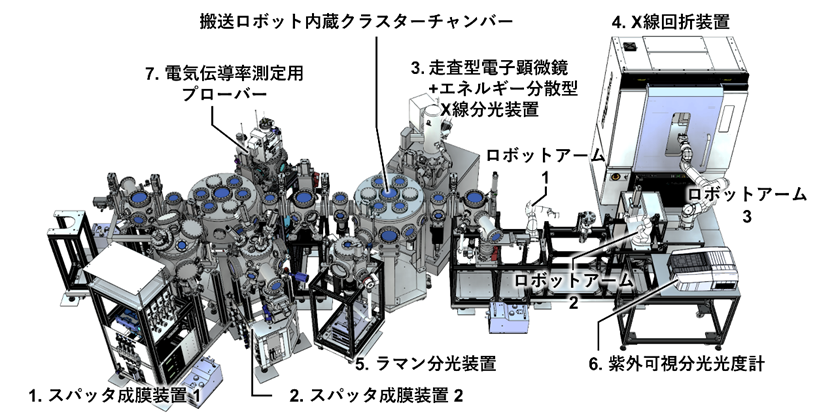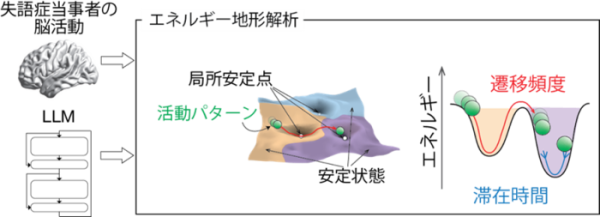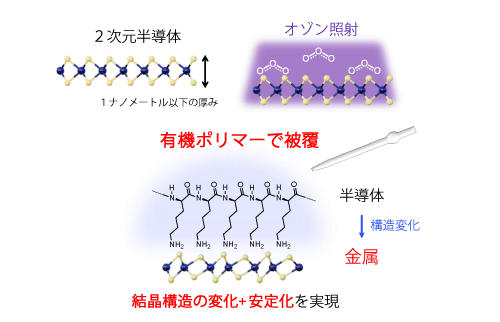2025-05-14 東京大学

図1:自動・自律実験を行うシステムの全体図
<関連情報>
- https://www.s.u-tokyo.ac.jp/ja/press/10741/
- https://pubs.rsc.org/en/content/articlelanding/2025/dd/d4dd00326h
モジュール化された測定システムと標準化されたデータ形式を持つデジタル検査室 A digital laboratory with a modular measurement system and standardized data format
Kazunori Nishio, Akira Aiba, Kei Takihara,Yota Suzuki, Ryo Nakayama, Shigeru Kobayashi, Akira Abe, Haruki Baba, Shinichi Katagiri, Kazuki Omoto, Kazuki Ito,Ryota Shimizu and Taro Hitosugi
Digital Discovery Published:14 May 2025
DOI:https://doi.org/10.1039/D4DD00326H
Abstract
Machine learning, robotics, and data are the keys for accelerating the discovery of new materials. While collecting more data is essential, the experimental processes remain a bottleneck. In this study, we constructed a digital laboratory by interconnecting apparatuses using robots to collect experimental data (synthesis processes and measured physical properties, including measurement conditions) for solid materials research. A variety of modular experimental instruments are physically interconnected, enabling fully automated processes from material synthesis to measurement and analysis. The data from each measurement instrument are outputted in an XML format, namely MaiML, and collected in a cloud-based database. In addition, the data are analyzed by software and utilized on the cloud. Using this system, we demonstrate an autonomous synthesis of high-quality LiCoO2 (001) thin films. The system maximized the X-ray diffraction peak-intensity ratio of LiCoO2 (001) thin films using Bayesian optimization. This system demonstrates advanced automatic and autonomous material synthesis for data- and robot-driven materials science.



